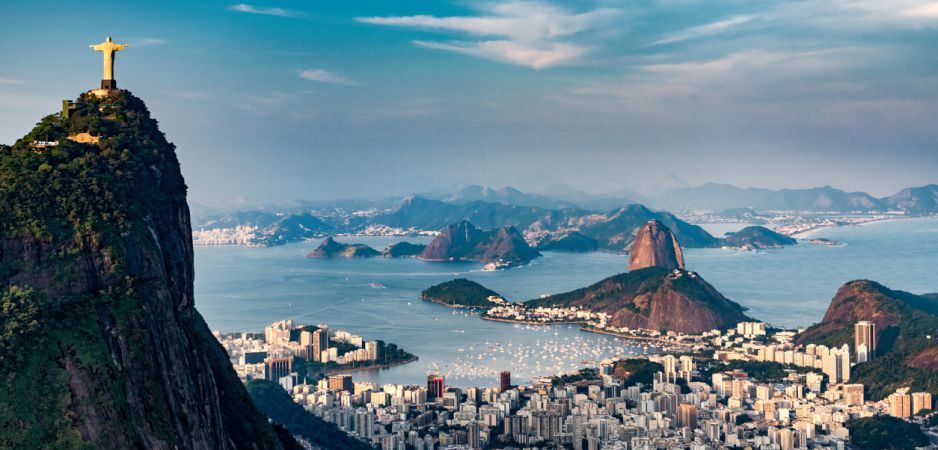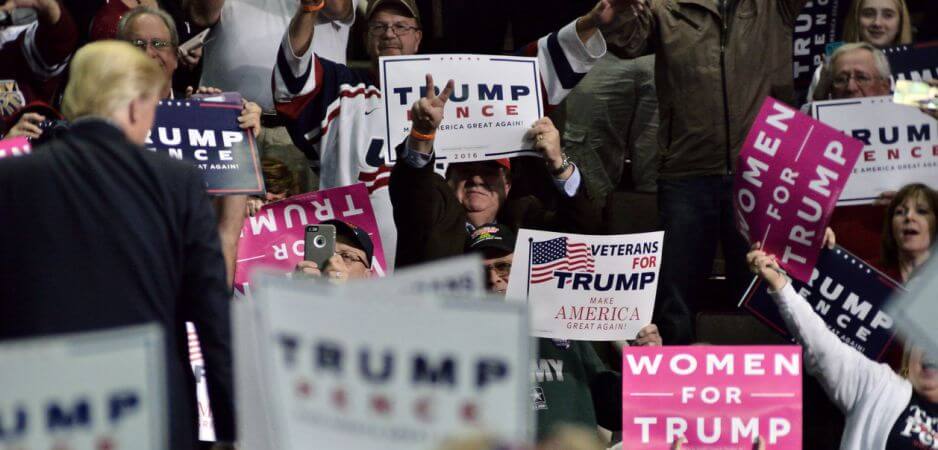Fidel Castro was a complicated leader who leaves behind a tortured legacy that involves both fighting apartheid and then killing his loyal general who led that fight.
Fidel Castro, the tall charismatic leader of Cuba, is dead. True to form, Donald Trump has called Fidel, as Castro has come to be called, a “brutal dictator.” In Miami, hundreds celebrated in the streets. One man said the “head of the snake” had been cut off and another remarked that Fidel’s death was the end of an ideology.
In other parts of the world, there was a different reaction. Indian Prime Minister Narendra Modi called Fidel “one of the most iconic personalities of the 20th century.” He went on to say, “India mourns the loss of a great friend.” Like Modi, many African leaders reacted with “words of condolence, praise and solidarity.” President Jacob Zuma thanked Fidel for supporting South Africans in their struggle against apartheid. Nigerian President Muhammadu Buhari called Fidel “a great friend to Africa,” and Rwandan President Paul Kagame saluted the Cuban’s “full liberation life.”
Elsewhere, Chinese President Xi Jinping declared, “Comrade Castro will live forever,” Pope Francis expressed “sentiments of grief,” and even European Commission President Jean-Claude Juncker called the former guerrilla “a hero for many.” In his native Latin America, millions mourned Fidel because they saw “El Comandante” who, in the words of Ecuadorian President Rafael Correa, left his country “more just, more equal but also more dignified and more sovereign.”
The Cuban who just died was a complex character who defies both deification and vilification. His story is well known and has been chronicled in obituaries around the world. Fidel was brave to the point of recklessness. In 1953, he led an attack on the Moncada army barracks near Santiago and ended up in prison. Only a general amnesty in 1955 enabled him to leave prison and embark on a second innings.
Once out of prison, Fidel fled to Mexico and met another revolutionary named Ernesto “Che” Guevara. In late November 1956, Fidel and Che returned with 80 others in Granma, an old, leaky cabin cruiser designed to carry just 12 men. By the law of probabilities, Fidel, Che & Co. should have perished in the perilous voyage. They did not have much luck when they landed. Government troops attacked them immediately on landing and killed most of them immediately or after capture. Only 22 survived and regrouped in the Sierra Maestra mountains.
What happened next is the stuff of legend. Fidel and Che led a guerrilla movement that overthrew Fulgencio Batista despite all the odds. Batista was a former army sergeant who had come to power through a coup in 1952. In the words of Sarah Rainsford of the BBC, “corruption, decadence and gross inequality” plagued Cuba. The country was run by organized crime syndicates where Americans turned up in droves to enjoy whiskey, rum, cocktails, cigars and Cuban women.
Then as now, history casts a dark shadow on both Cuba and the United States. In the March 27 edition of The World This Week, this author pointed out how Cuba was colonized by Europeans just like the US in the aftermath of Columbus’ voyage. Conquistadores engaged in an orgy of violence against the natives with slaughter, rape and robbery as par for the course.
The paths of the two countries diverged soon. While Protestant US declared independence from Great Britain as early as 1776 and powered ahead, Catholic Cuba remained a docile colony of strife-torn Spain until finally breaking out in rebellion in 1868. Only in 1898 did Cuba become independent thanks in part due to US troops like Theodore Roosevelt’s “Rough Riders” riding in to rescue.
The Americans came as liberators but soon turned into oppressors. This is a time when the US was modernizing fast. Its industries had an insatiable thirst for resources. Like the British before them, Americans were acquiring a taste for things like sugar. Sugarcane plantations like the one run by Fidel’s father provided the US with sugar. Direct rule by Spain was replaced by indirect rule by the US.
As Uncle Sam replaced Spain as the oppressor of Cuba and of Latin America, its companies ran banana republics in the region. Its intelligence agencies backed corrupt despots like Batista. These autocrats signed off land, mining rights and other resources to American companies, often for a pittance. Latin American economies found themselves producing commodities for Uncle Sam. The catch with this model was that the more commodities these economies produced, the more commodity prices fell. So, Latin American countries were caught in a terrible trap of poverty, economic exploitation and political repression.
This legacy continues till this day. In the September 4 edition of The World This Week, this author painted the backdrop of the 52-year-old Colombian civil war and pointed out that Latin America continues to be the world’s most unequal region. In 2014, the richest 10% owned 71% of the wealth. The “aristocracy of rank, office and wealth” that Simón Bolivar bemoaned continues to plague the region. Under Batista, life in Cuba had become so unbearable that the country was called “the whorehouse of America.”
Batista was among the most repulsive of Latin American dictators. He was brutal, corrupt and disastrous for the country. At some point, almost everyone in Cuba turned against Batista. On January 2, 1959, barely two years after returning to Cuba, Fidel and Che entered Havana in a triumphal procession with thousands cheering them on. Batista fled, “taking most of the Central Bank’s reserves of dollars and gold.” Consequently, Fidel took charge of a poor country with an empty treasury.
Initially, Fidel wooed Uncle Sam. After all, he had spent his honeymoon in Florida and raised money for his revolution in Miami. Americans were equally fascinated with this revolutionary. Cheering crowds greeted Fidel but Dwight D. Eisenhower, then president, preferred to play golf instead of meeting this towering man with a Himalayan ego. Fidel never forgot that slight. Richard Nixon, then vice president, met the young Cuban leader and concluded that Fidel was “either incredibly naive about communism or under communist discipline—my guess is the former.”
Soon, Fidel embraced communism completely and Soviet economic aid to Cuba kept the country aloft. Tanks not just tractors started arriving in. They helped when John F. Kennedy and Robert F. Kennedy launched the disastrous Bay of Pigs in 1961. The image of Fidel leading his troops and jumping off a tank has become iconic since. The invasion was followed by the Cuban Missile Crisis in 1962 that made the Cold War incandescent hot and nearly led to nuclear war. Thereafter, the Soviets and Americans reached a rapprochement and Fidel was left fuming in fury as a result.
 Throughout life, Fidel had his ups and downs. He managed to dodge death for decades. As per legend, the Central Intelligence Agency (CIA) tried to kill him an estimated 600 times. Channel 4, a British television station, would make a documentary, 638 Ways to Kill Castro, about the numerous assassination attempts to kill this cigar chomping communist. Arguably, these attempts did not harm him as much as the collapse of the Soviet Union. That moment in 1991 nearly brought Fidel down.
Throughout life, Fidel had his ups and downs. He managed to dodge death for decades. As per legend, the Central Intelligence Agency (CIA) tried to kill him an estimated 600 times. Channel 4, a British television station, would make a documentary, 638 Ways to Kill Castro, about the numerous assassination attempts to kill this cigar chomping communist. Arguably, these attempts did not harm him as much as the collapse of the Soviet Union. That moment in 1991 nearly brought Fidel down.
The Cuban economy contracted by a third. After all, the Soviets alone had imported 80% of the country’s sugar and 40% of its citrus. They also provided Cuba most of its oil. Economically, Cuba had been a Soviet client regime. With the Soviets gone, Cuba suffered immensely. Castro managed to survive this crisis, too, and new benefactors appeared in his backyard as a new generation of left-leaning leaders emerged in Venezuela, Brazil and Bolivia to proffer support.
Like all living creatures, Fidel grew old and Raúl Castro, his loyal brother and longstanding comrade, took over. In came economic reforms, new private businesses and a mixed economy. Inexorably, Cuba started moving in the same direction as China and Vietnam. Rapprochement with Uncle Sam followed and US President Barack Obama turned up in Cuba earlier this year for a visit. Things seemed to be mellowing down, but Fidel’s death has revealed chasms that still run deep and wide.
For many, Fidel was merely a brutal dictator who ran a repressive one-party state. He and his cronies killed wantonly without due process or mercy. Fidel’s insistence that “revolutionary justice is not based on legal precepts, but on moral conviction” revolts those who believe in human rights and rule of law. In Fidel’s Cuba, there was no freedom of speech, repression rife, torture rampant and imprisonment of political enemies a way of life. Obedience to Fidel and loyalty to his party had to be unquestionable. It is little surprise that many damn Fidel as a modern-day absolutist monarch guilty of medieval barbarity.
Apart from political repression, Fidel brought economic ruin to his country. He quite literally ran the Cuban economy into the ground. Havana’s dilapidated buildings are testimony to the penury his ideas and decisions imposed on Cuba. Like Joseph Stalin before him, he nationalized all private property. In fact, the first farm Fidel nationalized was the Castro family farm and his mother never forgave him for it. Neither have millions of others who lost their farms, shops and small businesses they had worked so hard to create. Fidel’s apparatchiks have failed as miserably as their Soviet counterparts. The Cuban Revolution of Fidel led to an exodus to the US.
So, are Fidel’s critics right? Was he a blundering murdering monster, a mini Stalin?
Fidel’s admirers argue that life expectancy at birth in Cuba is exceeds 79 and infant mortality merely 4.5 per 1,000 live births, a figure lower than the US. They argue that Cubans have great health care, terrific doctors, good schools and decent universities. They have a point. In 2015, Cuba became the first country in the world to eliminate mother-to-child transmission of HIV and syphilis. A year earlier, Fidel’s tiny island country had sent more than 50,000 health professionals to serve in 66 countries. Even Time, an Americano publication, acknowledged that Cuba was a hero in fighting Ebola.
Some argue that Fidel was not responsible for all of Cuba’s economic woes. Over five decades ago, the US imposed a draconian embargo on its tiny neighbor. While claiming to support freedom and oppose terrorism, it trained terrorists, harbored violent reactionaries and inflicted untold suffering on millions of Cubans. Wayne S. Smith, a foreign policy guru who resigned from the US State Department over disagreements with Ronald Reagan’s doctrinaire Cuba policy, once aptly remarked, “Cuba seems to have the same effect on American administrations that the full moon once had on werewolves.” So, Fidel’s supporters do have a point.
Many of Fidel’s most ardent admirers are in Africa. Like Nelson Mandela, they cannot forget Cuban support of liberation struggles against European colonial powers. It is now an open secret in most places other than the land of the free and the home of the brave that Cuban intervention in Angola hastened the end of apartheid. Apartheid South Africa had intervened in this former Portuguese colony to prop up a proxy regime. At this time, Uncle Sam supported apartheid and acted in tandem with the South Africans in Angola, deeming Mandela a terrorist. Unfortunately for the US, the fabled South African military machine was humbled for the first time on African soil by Cuban fighters and their allies.
So, do Fidel’s supporters have a point? Was he the great freedom fighter battling colonialism, imperialism and racism?
The way The Economist describes Fidel is telling. For this 1843-vintage opponent of India’s independence, “Fidel was a Marxist of convenience, a Cuban nationalist by conviction and a Latin American caudillo by vocation.” This well-crafted sentence is only partly true, but those who oppose the view of Fidel as an evil dictator are being pilloried. Canadian Prime Minister Justin Trudeau has been hauled over the coals for being complimentary about Fidel. Ségolène Royal, a French leader who once ran to be president, has found herself in hot water too.
By contrast, in the non-white world, even the market-friendly Modi who is often accused of being fascist has to sing paeans to Comrade Fidel. Here, any criticism of the late Cuban leader is seen as support for apartheid. Fidel has become a sacred icon of the anti-imperial struggle against white supremacists.
The truth is far more complicated. The perspicacious Peter Isackson refers to Fidel as Asterix the Gaul for our times. Barely 90 miles from American shores, Fidel managed to make mockery of the Monroe Doctrine and spat in the eye of the insufferable worthies in Washington, DC. This earned him respect around the world. Of course, Fidel was brave, generous and idealistic to many poor countries, whether in supporting their liberation struggles or in providing them modern medicine. This made him a hero to millions.
At the same time, Fidel was a canny ruler who wanted absolute power. He cleverly sent off his most illustrious knight to fight distant crusades without much support. Che’s death and beatification turned out to be most convenient for Fidel. More damningly, Fidel executed Arnaldo Ochoa Sanchez, his splendid general and the hero of Angola, on thinly disguised charges that were blatantly untrue. It was reminiscent of Robespierre turning on Danton or Stalin getting rid of Kirov.
Fidel, the Jesuit-trained communist, was complicated. Both saint and sinner, he leaves behind at least 10 children from many mothers and a most tortured legacy.
*[You can receive “The World This Week” directly in your inbox by subscribing to our mailing list. Simply visit Fair Observer and enter your email address in the space provided. Meanwhile, please find below five of our finest articles for the week.]
Survival Sex: A Violent, Dangerous Game
At the fringes of the sex industry in the north of England, men and women are selling sex to survive.
Any local pizza parlor, on any given day. Bright lights, cheap plastic, the smell of frying grease. Men hanging around the cramped tables, coddling beer bottles, chatting. The owner lets a woman take a client into the back room to sell herself to him for some cash and warm food, as he waits for his order.
This is not, as you may have imagined, Eastern Europe in the unhinged 1990s. This is today’s Great Britain, where a generational cycle of poverty, violence and addiction drives both men and (mostly) women to the lowest rung of the sex industry: survival sex.
In 2014, the Office of National Statistics’ (ONS) inclusion of the shadow economy in calculating the country’s gross domestic product (GDP) added an estimated £5 billion from prostitution alone. Many have pointed to the problematic nature of such… Read more
The Meaning and Taste of Thanksgiving
For one day in the year on Thanksgiving, Americans hope to renew a sense of “belonging” to a fading culture.
Once a year, on the fourth Thursday of November, Americans honor their imagined Puritan heritage, even if today only a tiny minority can trace their ancestry back to the communities of 17th century New England. This year’s celebration will see half the population tuck in to Thanksgiving dinner while attempting to overcome their lingering indigestion following Donald Trump’s election. The other half—those who voted for him—will be giving thanks not just to his campaign for its successful strategy and the media for giving their candidate so much play, but some of them will feel revitalized by the idea that the white, Christian heritage of the Puritans has been validated by a majority in the electoral college.
The historical mythology surrounding the first Thanksgiving has always been confused, and never more so than today, marked not only… Read more
An Opportunity to Fill the Leadership Void in Korea
What does Donald Trump’s victory mean for the future of the Korean Peninsula?
I recently returned to the United States after living, working and studying in Seoul, South Korea, for the past six years. As I prepared to return to America last spring, the US presidential election and the possibility of a Donald Trump presidency had gripped South Korea with such ferocity that I found myself doing a tour de Seoul trying to explain the Trump phenomenon. I was invited to speak to decision makers, lawyers, business professionals and politicians, and even appear on Korea’s most popular Korean-speaking foreigner show, Abnormal Summit, to discuss anything American and everything Donald Trump.
I learned that despite our differences in perspectives, these differences were compounded due to the sensationalist and hysterical reporting by Western media outlets. This reckless reporting has confused and terrified my Korean friends, colleagues and counterparts by sowing seeds of fear and doubt across East Asia, a region… Read more
Amid Uncertainty, Latin America is Looking Up
Despite a recession, the Latin America and Caribbean region is looking ahead.
For the first time since 1982-83, the Latin America and Caribbean region is expected to be in recession for two consecutive years (2015-16). According to World Economic Outlook forecasts, growth is expected to be -0.6% this year following growth of -0.03% last year. The fall in commodity prices, lower global trade and continued weakness in advanced economies, combined with a set of internal factors in some of the larger regional economies, have driven growth lower.
However, there is considerable heterogeneity in the region. The simple average growth rate across the 26 regional economies is expected to be 1.6% this year, and while six countries are expected to have negative growth, 12 are expected to grow at more than 2.5% and five at 4% and higher. In addition, the baseline prospects for 2017 indicate a recovery for the region, with a growth rate of 1.6% and only… Read more
Beyond 2016: Moving America Forward
If Americans do not engage with their fellow citizens, resentment over the impact of globalization will grow.
A cottage industry of commentators has emerged in explaining the rise of Donald Trump and how he eventually went on to capture the White House. However, what has become clear over the past year is that globalization has created a new class structure in the West—those who have benefited from globalization and those who have not—which does not fall neatly along previous political lines. While this new structure is by no means unique to the US, it has taken slightly different political persuasions elsewhere. Both groups are worthy of investigation.
The social and political elites of America generally enjoy the fruits of globalization. As income inequality exacerbates difference within our nation, the higher socioeconomic strata tend to enjoy increasing diversity of global cultures, cuisines, languages and people. However, they are broadly guilty of self-serving top-down thinking. Private sector elites… Read more
The views expressed in this article are the author’s own and do not necessarily reflect Fair Observer’s editorial policy.
Photo Credit: Yun Leong
Support Fair Observer
We rely on your support for our independence, diversity and quality.
For more than 10 years, Fair Observer has been free, fair and independent. No billionaire owns us, no advertisers control us. We are a reader-supported nonprofit. Unlike many other publications, we keep our content free for readers regardless of where they live or whether they can afford to pay. We have no paywalls and no ads.
In the post-truth era of fake news, echo chambers and filter bubbles, we publish a plurality of perspectives from around the world. Anyone can publish with us, but everyone goes through a rigorous editorial process. So, you get fact-checked, well-reasoned content instead of noise.
We publish 2,500+ voices from 90+ countries. We also conduct education and training programs
on subjects ranging from digital media and journalism to writing and critical thinking. This
doesn’t come cheap. Servers, editors, trainers and web developers cost
money.
Please consider supporting us on a regular basis as a recurring donor or a
sustaining member.
Will you support FO’s journalism?
We rely on your support for our independence, diversity and quality.











